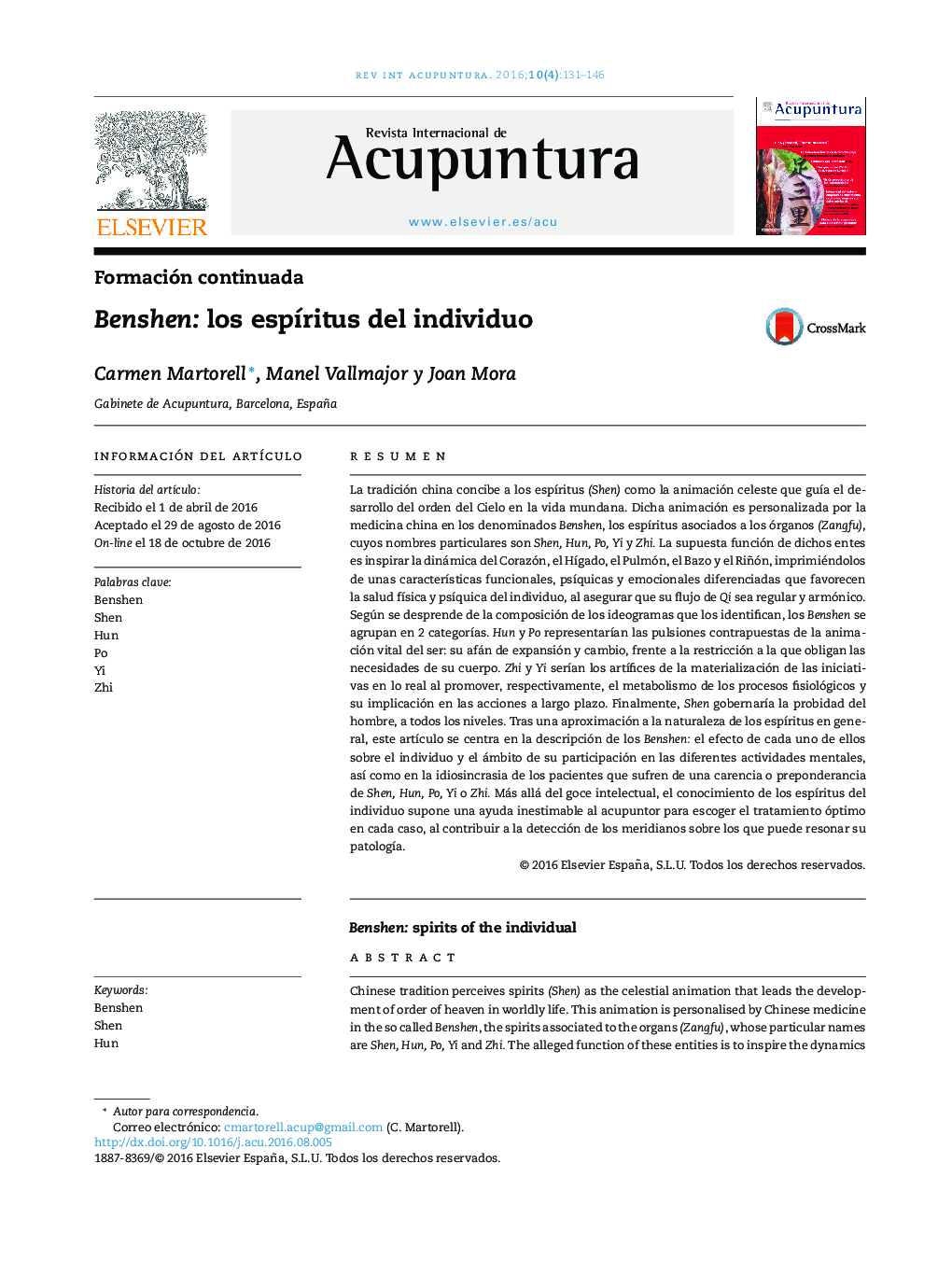| Article ID | Journal | Published Year | Pages | File Type |
|---|---|---|---|---|
| 8693894 | Revista Internacional de Acupuntura | 2016 | 16 Pages |
Abstract
Chinese tradition perceives spirits (Shen) as the celestial animation that leads the development of order of heaven in worldly life. This animation is personalised by Chinese medicine in the so called Benshen, the spirits associated to the organs (Zangfu), whose particular names are Shen, Hun, Po, Yi and Zhi. The alleged function of these entities is to inspire the dynamics of the Heart, Liver, Lung, Spleen and Kidney, thus providing them with distinct functional, psychic and emotional characteristics that favour physical and mental health of the individual by ensuring their Qi flow is constant and harmonious. According to the composition of the ideograms that identify them, the Benshen are grouped into 2 categories. Hun and Po would represent the opposing drives of the being's vital animation: their drive to expand and change, versus the restriction forced by the need of its body. Zhi and Yi would be the orchestrators of the embodiment of the initiatives of the real by promoting, respectively, metabolism of physiological processes and implications of the said processes in long-term actions. Finally, Shen would govern the probity of the man on all levels. After a general approach to the nature of spirits, this article focuses on the description of the Benshen: the effect of each of them on individuals and their scope for participation in the different mental activities, as well as the idiosyncrasy of patients who suffer from a shortfall or prevalence of Shen, Hun, Po, Yi or Zhi. Beyond intellectual enjoyment, knowledge of the spirits of the individual constitutes an individual aid for the acupuncturist to choose the optimal treatment for each case, by contributing to the detection of the meridians on which their conditions may resonate.
Keywords
Related Topics
Health Sciences
Medicine and Dentistry
Complementary and Alternative Medicine
Authors
Carmen Martorell, Manel Vallmajor, Joan Mora,
